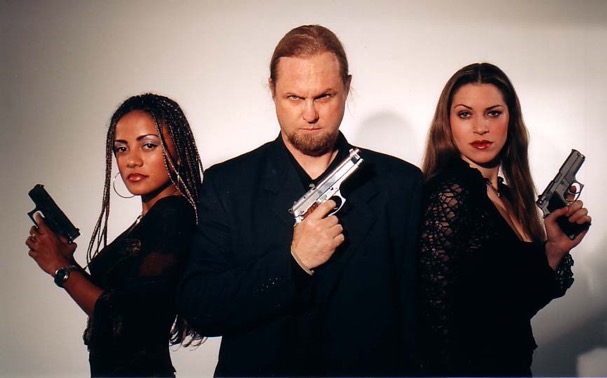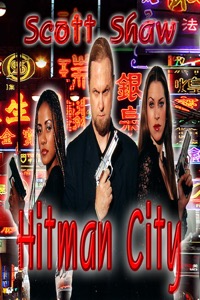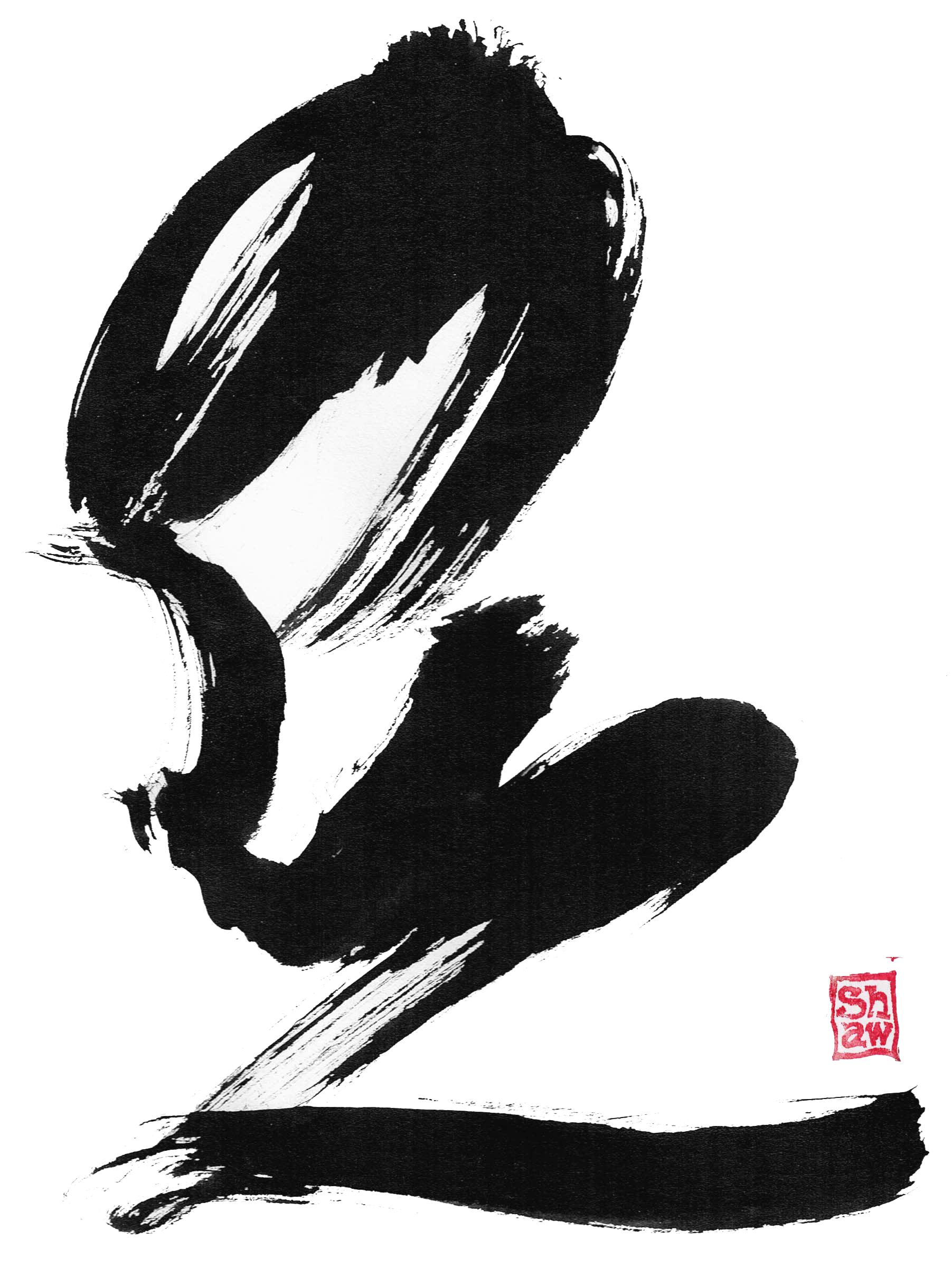
Scott Shaw Hitman City
A Vigilante's Quest for Justice on the Streets
Hitman City (2003): This is a low-budget film created by Scott Shaw in his Zen Filmmaking style of filmmaking. It explores the story of Jericho Ryder, a vigilante assassin on a mission to clean up the streets of Los Angeles. The film blends themes of street justice, spirituality, and martial arts into an action-packed narrative.
Plot:
- The film follows Jericho Ryder, a street-smart martial artist driven by a personal tragedy. He takes on the mantle of a vigilante assassin, targeting corrupt individuals and criminals who exploit the vulnerable in South Central Los Angeles.
- Jericho's motives are fueled by a mix of personal pain, a desire for justice, and a spiritual quest for redemption. As he eliminates his targets, he faces internal struggles and confronts the brutal realities of his chosen path.
Themes:
- Street Justice: The film explores the concept of taking justice into one's own hands when legal systems fail. It raises questions about morality and the consequences of vigilante actions.
- Spirituality and Redemption: Jericho's journey can be seen through a spiritual lens, with his quest for justice serving as a path towards personal healing and redemption.
- Urban Violence and Social Commentary: The film's setting in Los Angeles tackles themes of poverty, gang violence, and the struggles faced by marginalized communities.
Reception:
- Hitman City received mixed reviews upon release. Some praised its raw energy, action sequences, and exploration of social issues. Others criticized its low budget production value, acting, and stereotypical portrayals.
- Despite the mixed reception, the film developed a cult following among fans of independent cinema and those intrigued by its unique blend of action, spirituality, and social commentary.
Scott Shaw's Hitman City: A Deeper Dive
Production and Background:
- Written, produced, and directed by Scott Shaw himself, Hitman City embodies his signature, Zen Filmmaking approach. This style emphasizes improvisation, spiritual themes, and social commentary within a low-budget framework.
- The film was shot on location in various LA neighborhoods, capturing the raw energy and struggles of the communities depicted.
- The cast features Scott Shaw as Jericho Ryder, alongside Joe Estevez, Hae Won Shin, and other frequent collaborators of Shaw.
Story and Characters:
- Jericho Ryder, the central character, is a complex protagonist. He's driven by his own demons and seeks justice for personal tragedy, blurring the lines between vigilante and savior.
- While eliminating corrupt individuals, he engages in philosophical dialogues and introspective moments, revealing his search for redemption and questioning the path he's chosen.
- Supporting characters, like Jericho's mentor Gideon and the diverse individuals he encounters, further explore themes of justice, faith, and social issues.
Style and Visuals:
- Expect a distinctive style with handheld camerawork, gritty urban environments, and stylized fight choreography.
- The film incorporates influences from Asian martial arts cinema, creating a unique visual blend.
- The soundtrack features an eclectic mix of rock, techno, and original compositions, reflecting the film's streetwise atmosphere.
Impact and Legacy:
- Despite limited distribution, Hitman City gained a cult following. Fans appreciate its raw energy, social commentary, and exploration of complex themes within a genre setting.
- The film stands as a unique example of Scott Shaw's Zen Filmmaking style, showcasing his independent spirit and dedication to portraying marginalized communities and social issues.

Hitman City DVD
Hitman City on YouTube
Hitman City on Amazon Prime Video



